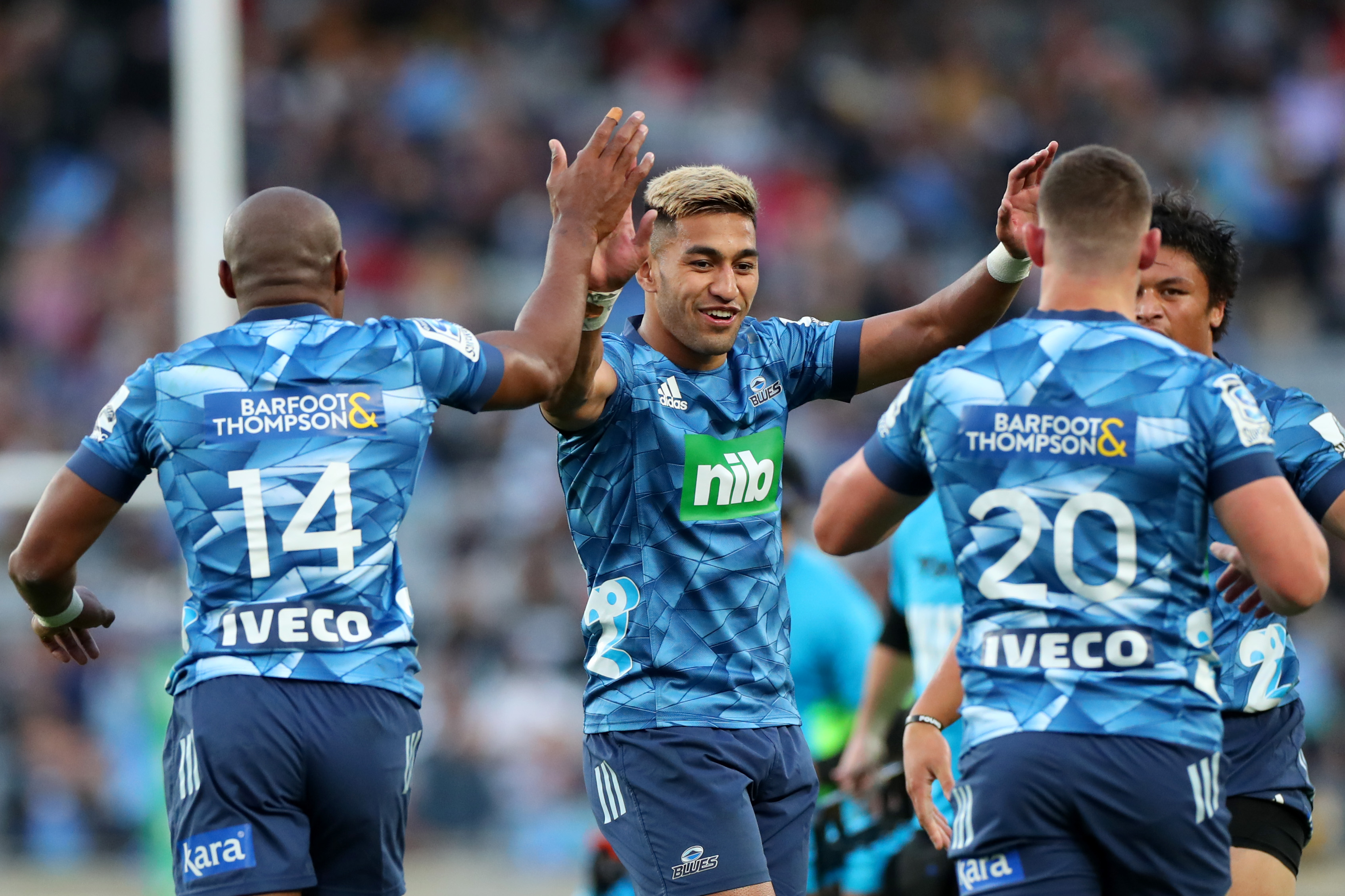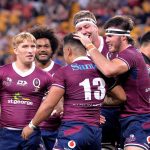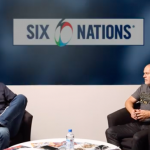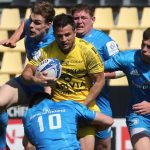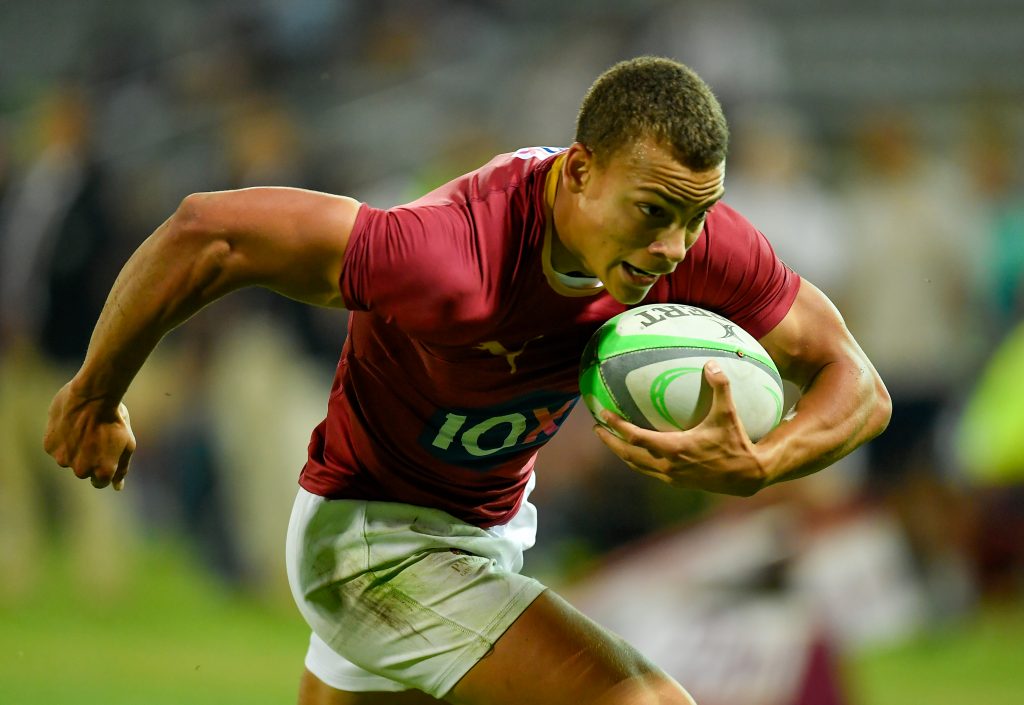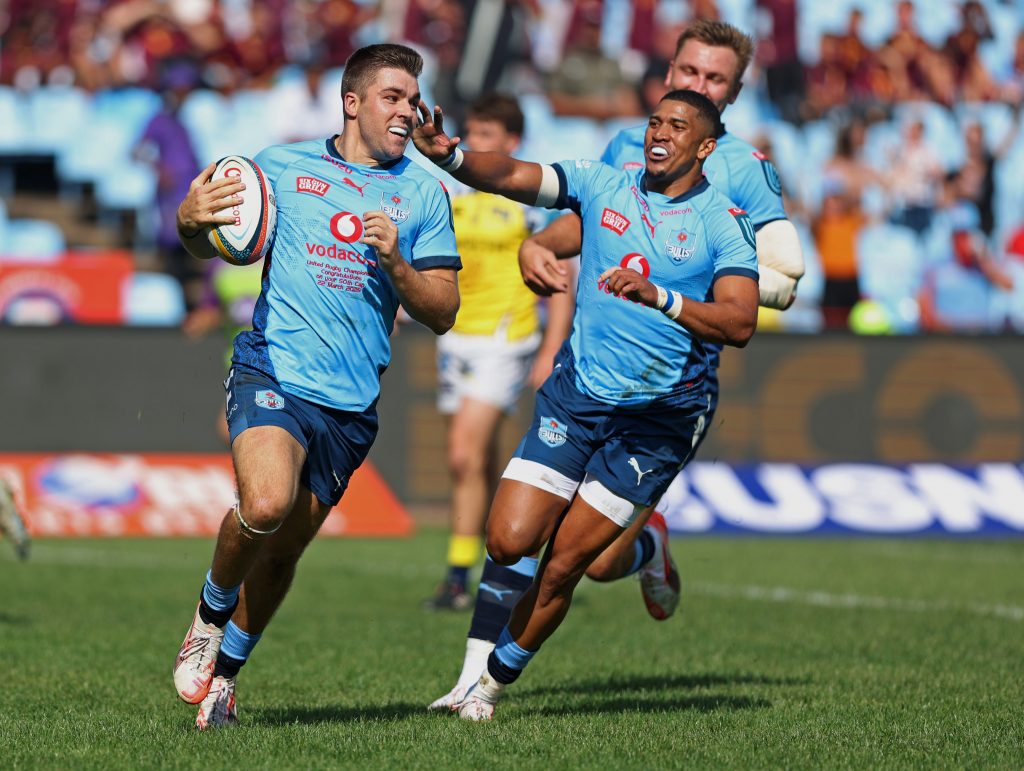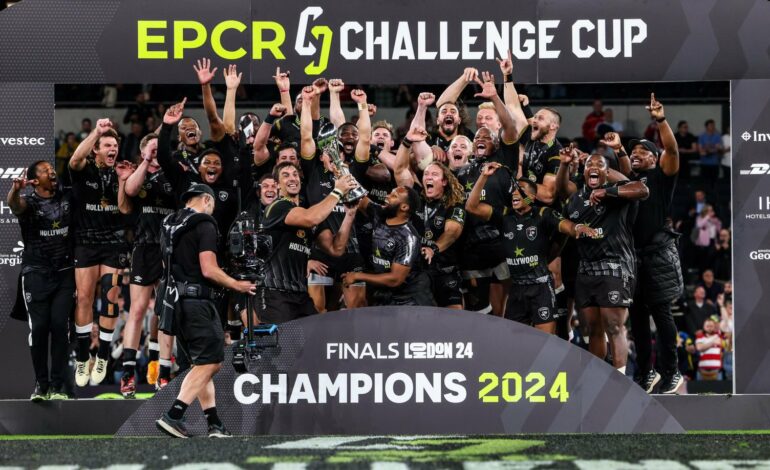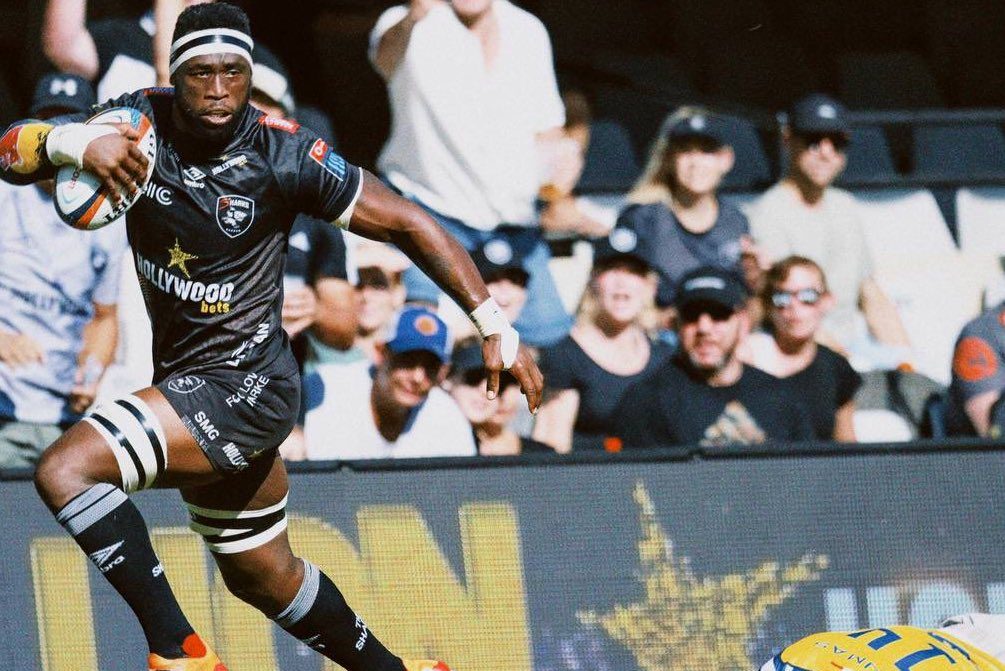Mark Hinton, writing for Stuff.co.nz
The pretenders are finally contenders again. Or, as one Blues insider put it, the “basket cases” of New Zealand rugby have at long last morphed into the legitimate high-level franchise they’ve always aspired to be.
It has been, you could say, a long time coming. And it has not occurred without some blood on the floor. But finally, after more or less a decade entrenched in the basement of the New Zealand professional game, the Blues are soaring, drawing and scoring more points than their opponents on a weekly basis. It would appear to be finally safe for the Eden Park faithful to show their faces again.
No one is getting ahead of themselves at the Blues just three games – and three victories – into this revamped Super Rugby Aotearoa season, on the back of a hugely promising wider campaign pre-Covid that was nipped in the bud at the most inopportune time.
Of course, it remains very much a work in progress. More could – and should – be known following next Saturday night’s visit to that professional rugby measuring stick, the Crusaders. However no one at Alexandra Park is ordering up any ticker-tape just yet. The numbers may be gaudy but feet remain perched firmly on terra firma.
“We’re still very much in head-down and work-hard mode,” head coach Leon MacDonald told Stuff as he returned early from bye week to begin plotting the blockbuster showdown against his old franchise. “We definitely don’t feel like we’re done yet. We were pretty real in our review of the game last weekend (a squeaky 27-24 home victory over the Highlanders) and were very disappointed with a lot of aspects. It’s a weekly process. We’ve only played three games and have a lot of work ahead.”
Still, consider the backdrop to this season. The Blues last played finals football – and had a winning record – in 2011. Since then their finishing positions read: 12th, 10th, 10th, 14th, 11th, 9th, 14th and 13th. They have been Kiwi conference wooden-spooners for six seasons on the bounce and have been champions of nothing more than their patent inability to deliver on their own promises. Talent has never been an issue in this franchise; though consistency, stickability, smarts and a strong, unified culture certainly have been.
“This franchise was a basket case,” declared one mover and shaker in the corridors of HQ who did not want to be named. “But the alignment right now is the best it’s been for a long, long time. We’re still very much a work in progress, but we’ve come a long way in a short time.”
That they have. MacDonald came in to head a revamped coaching setup only shortly ahead of last season. That followed a New Zealand Rugby-led boardroom coup that saw Don Mackinnon brought in as chair and private equity interests ousted. This year the well-travelled Andrew Hore arrived to take over as chief executive and the franchise has also swept the new broom through its high-performance pathways.
Crucially, there is now unanimity among the constituent unions of Auckland, North Harbour and Northland who were barely on speaking terms prior to 2019. On the squad front, MacDonald has built an excellent playing group.
He brought in some key heavy-hitters (Beauden Barrett and Dan Carter the headliners in 2020), added crucial high-character types down the depth chart and developed the likes of Hoskins Sotutu, Caleb Clarke, TJ Faiane, Mark Telea and Stephen Perofeta (now out injured) into standout performers, alongside the established class of Rieko Ioane, Ofa Tu’ungafasi, skipper Patrick Tuipulotu, Otere Black, Dalton Papalii and James Parsons.
The results have been dramatic. The Blues went 5-2 before Super Rugby proper shutdown – their best start since 2011 – and with that 3-0 start to Aotearoa have now won seven straight, four in a row against Kiwi sides and four on the bounce on the road. Only the Crusaders look their equal thus far.
The appointment of MacDonald was clearly inspired. He has overseen major improvements in key areas of culture, leadership, tactics and game-plan execution. Hard work, accountability and team-first have become bywords at the franchise and that all flows down from the top.
But MacDonald’s support crew also deserve credit. Tom Coventry has that pack humming, Tana Umaga has overseen a defensive awakening and Daniel Halangahu and Ben Afeaki are excellent complementary pieces. Fitness man Phil Healey has them lasting the distance.
It might have been a roll of the dice at the time, but the unprecedented call to allow Umaga to drop from head coach into an assistant’s role has been vital. MacDonald is very much the boss but the charismatic Umaga remains a highly influential figure in this setup.
“He’s been a massive part of the team … you can see a lot of character in our defence and that’s driven by Tana,” says MacDonald of a man he calls a “trusted ally and a seriously good coach”.
“He’s passionate but also very wise technically and knows how to bring the best out of his players.”
The Blues have also smartly broken leadership – such a glaring weakness hitherto – down into separate components. Tuipulotu, Parsons, Ioane and Faiane drive one part and the playmakers the other.
“We’ve got a really good leadership that is motivated,” added MacDonald, highlighting the growth and maturity of skipper Tuipulotu. “Their job isn’t about driving the game, it’s about driving the culture and we let our game-drivers like Otere and Beauden lead with the on-field stuff.
“Their sole job is to make sure we turn up with the right attitude at training, our standards are high and we work hard. They get up in front of the group and demand a lot, and when you’re demanding you’ve got to live those standards yourselves.”
MacDonald identifies major inroads in the area of alignment, around talent identification and retention, and in the front office and provincial unions. The players sense something positive brewing and are inspired to lift their own standards accordingly. Average home crowds of 35,000 through the first two home games also indicate the fans are on board.
Now, in a week, the ultimate challenge looms.
“It’s the test of all tests, going to Christchurch in July at 7pm against a team that’s so methodical around set piece, the contact area and how they play. It doesn’t get any tougher, but we can test ourselves, see where we’re really at and hopefully go down there and put on a show.”
The road from chumps to champs, from the outhouse to the penthouse, is a precipitous one. The Blues are climbing steadily.






